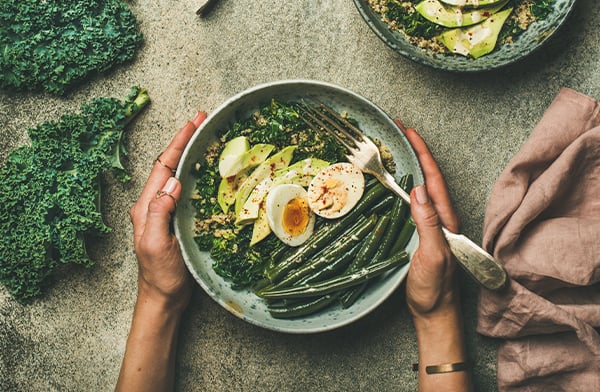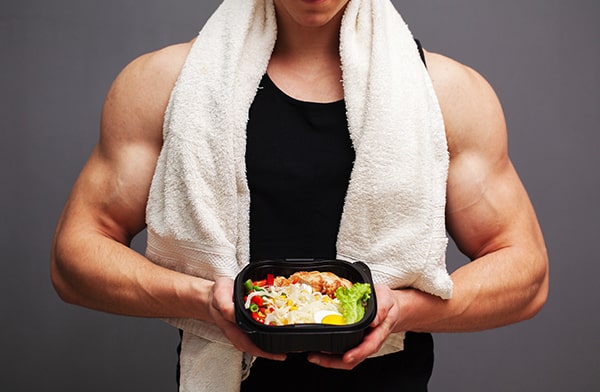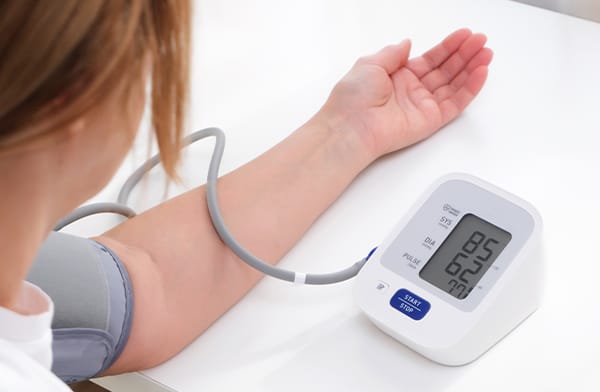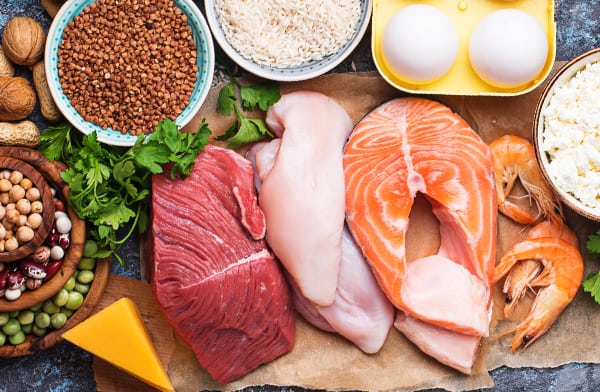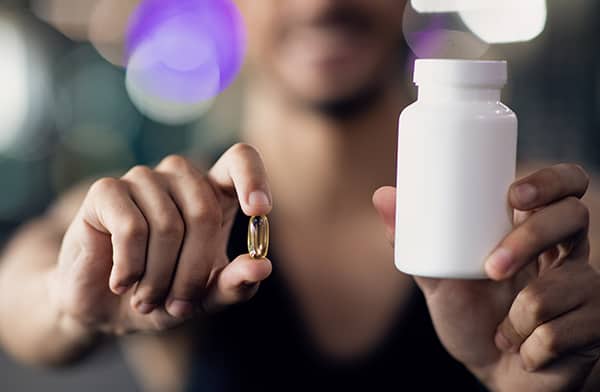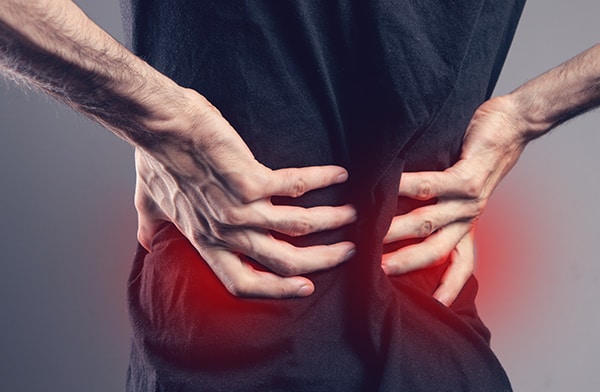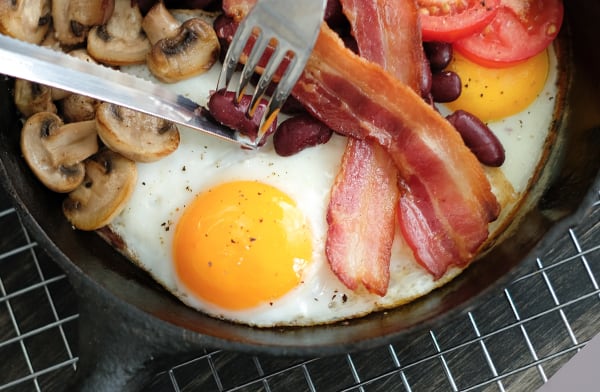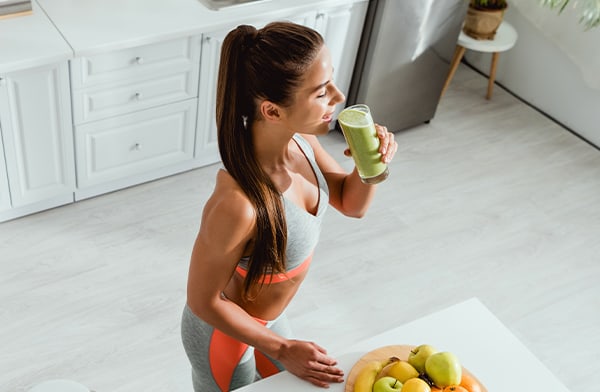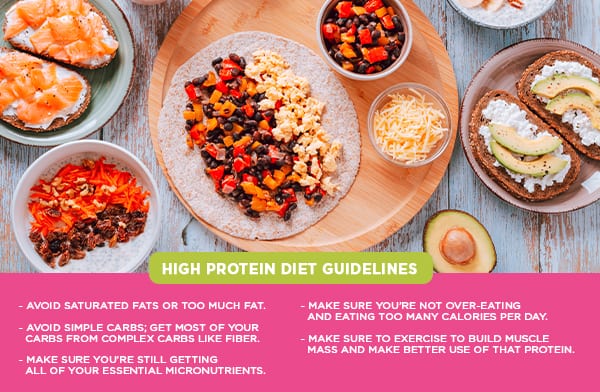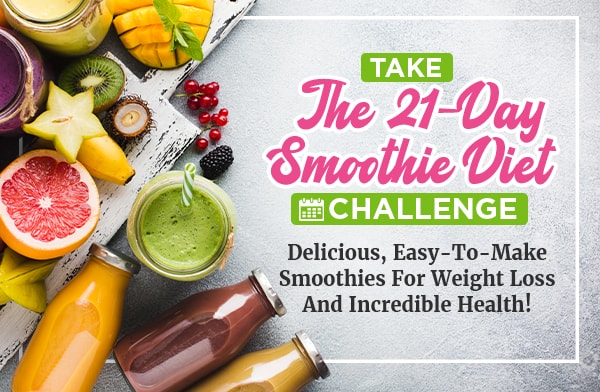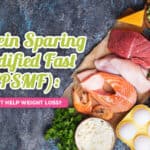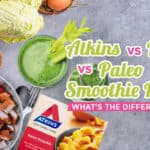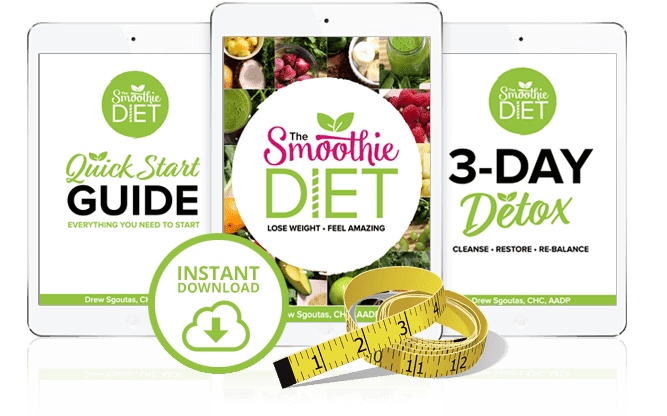What Are the Benefits of a High Protein Diet and Does It Work?
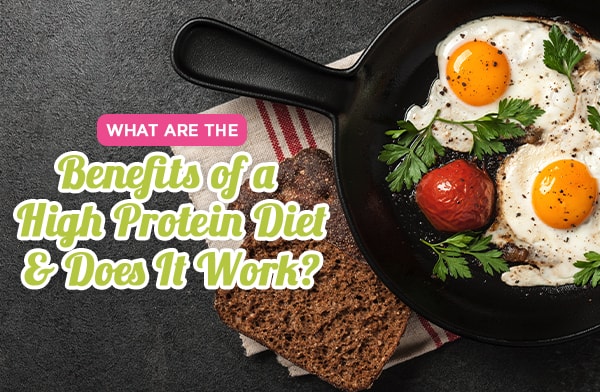
Protein is one of the three macronutrients, along with carbohydrates and fats. All three of them are necessary for your body to live and thrive, but how well your body functions depends on the balance between the three. Diets exist with all kinds of balances.
- High Fat diets are rare, and are often coupled with high protein.
- High protein diets include Keto, Atkins, Paleo, and more.
- High carbohydrate diets are more about cutting back fats.
Virtually any balance of the three has a name somewhere, though relatively few of them have made it and turned into well-known diet programs. They also may or may not be coupled with exercise.
Today, I wanted to talk about one specific balance, which is a high protein diet. High protein diets usually have a moderate level of healthy fats and a low level of carbohydrates, as in the Keto/Atkins/Paleo spectrum. You can click that link above to read my analysis of those three in comparison to each other and to the smoothie diet.
The question is, what are the benefits of a high protein diet? Is it worth trying to pursue, or does it have steep drawbacks?
The Benefits of a High Protein Diet
First up, let’s take a look at the science-backed benefits of a high protein diet.
It suppresses your appetite.
Protein, more so than fats or carbs (even fiber), helps you feel full for longer. It does this in two major ways. The first is that when your body breaks down protein, it reduces the amount of a certain hormone in your body. That hormone, known as ghrelin, is responsible for feelings of hunger and hunger pangs. Less ghrelin, less hunger.
Secondly, protein increases the amount of a peptide called YY, which comes from the pancreas. This peptide is essentially the opposite of ghrelin; it makes you feel full. Combined, these two biological triggers make you eat less, crave less, and take in fewer calories.
It helps you build muscle.
Muscle is healthier to carry on your bones than fat. It gives you strength, keeps you healthy, and makes you feel good about yourself. More muscle isn’t always better – bodybuilders have body dysmorphia as much as many other people – but for most people, building some additional muscle isn’t a bad thing.
Building muscle isn’t always great for weight loss, because muscle is denser than fat. You’ll look thinner and feel healthier, but you might weigh more or plateau in your weight loss journey. Eventually, though, you hit a tipping point; more muscle mass means your body needs more fuel, so it burns more fat. More muscle means you can lose weight more easily.
It lowers your blood pressure.
Blood pressure is incredibly important to monitor. High blood pressure leads to cardiovascular problems, which can lead to everything from heart disease to heart attacks and strokes. Plus, chronic high blood pressure has a cascading effect throughout your body, generally just making you feel worse.
Top-level reviews of studies have shown that higher protein diets lower blood pressure, both in diastolic and systolic pressures. As an added benefit, higher protein and lower carbs/fats helped reduce cholesterol levels and triglycerides.
It helps you heal and stay healthy.
Protein is part of what your body uses to heal itself, along with micronutrients. Protein is the primary building block of collagen, which is used as a sort of scaffold for repairing everything from individual cells to larger cuts, scrapes, and wounds. In fact, a higher protein diet can also help reduce the signs of aging by giving your body more collagen to work with.
How a High Protein Diet Works
How does a high protein diet work in the first place? There are two mechanisms at work.
The first is just general nutritional balance. Your body has a preference for the macronutrients it uses. Carbs – at least, simple carbs – are first. Sugar is the main offender here. It’s super easy to digest and gives you a ton of energy, which is why your body prefers it. In fact, your body is so effective at digesting those carbs that it usually produces more energy than you can burn. That energy is then converted into bodily fat and stored for later when times are tough.
Second, comes protein. It takes more work to digest and isn’t as energy-efficient, but it’s still valuable, and the broken-down amino acids can be used for all manner of different bodily processes. Protein is difficult to digest fast enough to have excess energy to store as fat.
Fat, meanwhile, is harder to digest and has more negative effects on the body. You do still need some fats in your diet, but you don’t need as much as you are likely getting normally, and you should focus on healthier fats like MCT oil over unhealthy fats.
The second mechanism is ketosis. Ketosis is the bodily process wherein your body, absent other sources of nutrition, starts to break down stored fat for energy instead. Fat fuels your body more effectively than protein, but takes longer to break down and use. That’s why it’s used as a sort of natural battery, after all.
The trouble is, ketosis only works when there are nearly zero carbs in your system, and it takes hours to kick in. You’re in ketosis when you wake up in the morning, but if you eat a slice of toast or a bowl of cereal, you kick yourself out of ketosis immediately. When you’re not in ketosis, you’re not burning stored fat.
This is why strict low-carb diets like Keto tend to dramatically restrict your carb intake; they want you to stay in ketosis as long as possible to help you lose weight.
Does High Protein Have Drawbacks?
Shifting your macronutrients around and cutting out entire groups of food sounds risky. Are there drawbacks to a high protein diet? The truth is, there are a few, but they aren’t necessarily difficult to avoid.
High protein diets make it easy to forget critical micronutrients.
When you’re focusing on a balance of macronutrients, it’s easy to forget that micronutrients are important too. Many people invested in a high protein diet like Keto also take a multivitamin regularly just to ensure that they’re getting good doses of the essential vitamins and minerals their body needs.
The biggest problem you’re likely to encounter is the fact that a lot of the micronutrients your body needs come from fruit and vegetable sources. Unfortunately, fruits are loaded with sugar, and vegetables are loaded with fiber, both of which are carbohydrates. You need to eat them in moderation, but you can’t skip them entirely; otherwise, you’re going to give yourself a nutritional deficiency.
High protein diets can be harmful to people with kidney disease.
Your kidneys process waste products from your blood and your digestive system. They need to operate to purge waste from your body, mostly through urine. One of the things your kidneys purge is the byproducts of protein digestion, including excess protein itself.
While there’s no evidence to suggest that a high protein diet can cause kidney damage – and studies have shown that healthy people maintain kidney function on high protein diets – if you already have kidney disease, high levels of protein can damage them further. This means anyone with kidney diseases, kidney cancers, or a nephrectomy surgery need to watch out for high protein levels.
Many sources of protein are loaded with unhealthy fats.
Protein is usually found from animal sources, which means two things. First, it’s not vegan unless you really go out of your way to only eat vegan sources of protein. Secondly, it tends to be coupled with fats, particularly saturated fats. A nice marbled slab of beef is a prime example; that marbling is delicious, but it’s also a ton of fat you don’t want to be eating.
This is why most high protein diet resources will give you a list of protein sources to eat, including fish, eggs, chicken, pork, and lean beef, but not fatty beef or other fatty sources.
One thing to mention before I leave off is that some people fear that a high protein diet can harm your bones. The idea is that protein is highly acidic compared to carbs and fats, and that acid needs to be counteracted in your body. The counter is calcium, and what is the biggest source of calcium? Your bones, of course. Thus, the idea is that a high protein diet leaches calcium from your bones to counteract the acidity. The truth is, though, there’s no real evidence to support this fear. Your body has plenty of ways to neutralize acid, and in fact, a higher protein diet seems to be better for those with osteoporosis. So, there’s really nothing to worry about with your bones.
How Does a High Protein Diet Work with the Smoothie Diet?
As a proponent of the smoothie diet (which you can find here), you might wonder why I’m discussing it so much recently. Can you do both the smoothie diet and the high protein diet at the same time?
The answer is both yes and no.
The smoothie diet is not a macronutrient-focused diet. Instead of worrying about the balance of nutrients, the smoothie diet focuses on cutting calories across the board. After all, weight loss is all about calories; the more you eat, the less you lose. It doesn’t matter what your nutrient balance is if you eat so many calories it’s impossible to lose weight outside of disease.
At the same time, you can do both calorie-cutting and macronutrient balance at the same time, and the smoothie diet is actually a great way to do that.
See, the smoothie diet does two things for you.
First, it gives you a way to get fruits and vegetables in your diet without hassle. Pick your blend according to your favorite smoothie recipes – of which I have many in the Smoothie Diet program – and drink them for your pre-dinner meals as a way to get your fiber, vitamins, minerals, and a healthy amount of carbs.
Secondly, the smoothie diet helps replace some of the less healthy meals throughout the day. Breakfast tends to be full of sugary treats and high-carb foods like breads, cereals, and so on. Replacing that with a smoothie is a great way to get healthier already.
The Smoothie Diet program I present also has you adjust your dinner to be healthier, and many of the options I offer and my sample recipes are based on lean meat with a healthy side.
It wouldn’t be a stretch, then, to take the basis of the smoothie diet and pump up the protein, drop back the carbs a little, and stay healthy and losing weight. Your smoothies might need to be a little smaller, or you might need to add more ingredients like beans, nuts, and seeds to get more protein in your smoothies, but it won’t be a difficult adjustment. Just know that my Smoothie Diet Program doesn’t, on its own, adhere to a high protein diet.
Does a High Protein Diet Work?
Let’s look at things from a top-down perspective. Does a high protein diet work?
To put it simply, yes.
The truth is, a high protein diet is one of the healthier options you have going for you, as long as you do it right. You need to be careful and follow certain guidelines, of course:
- Avoid saturated fats or too much fat.
- Avoid simple carbs; get most of your carbs from complex carbs like fiber.
- Make sure you’re still getting all of your essential micronutrients.
- Make sure you’re not over-eating and eating too many calories per day.
- Make sure to exercise to build muscle mass and make better use of that protein.
Plus, you need to ensure you don’t have health problems that would contraindicate a high protein diet, like kidney disease. Usually, though, a high protein diet is better for you than a high fat or high carb diet, or an uncontrolled diet. It’s also fairly easy to do, so why not give it a try?

